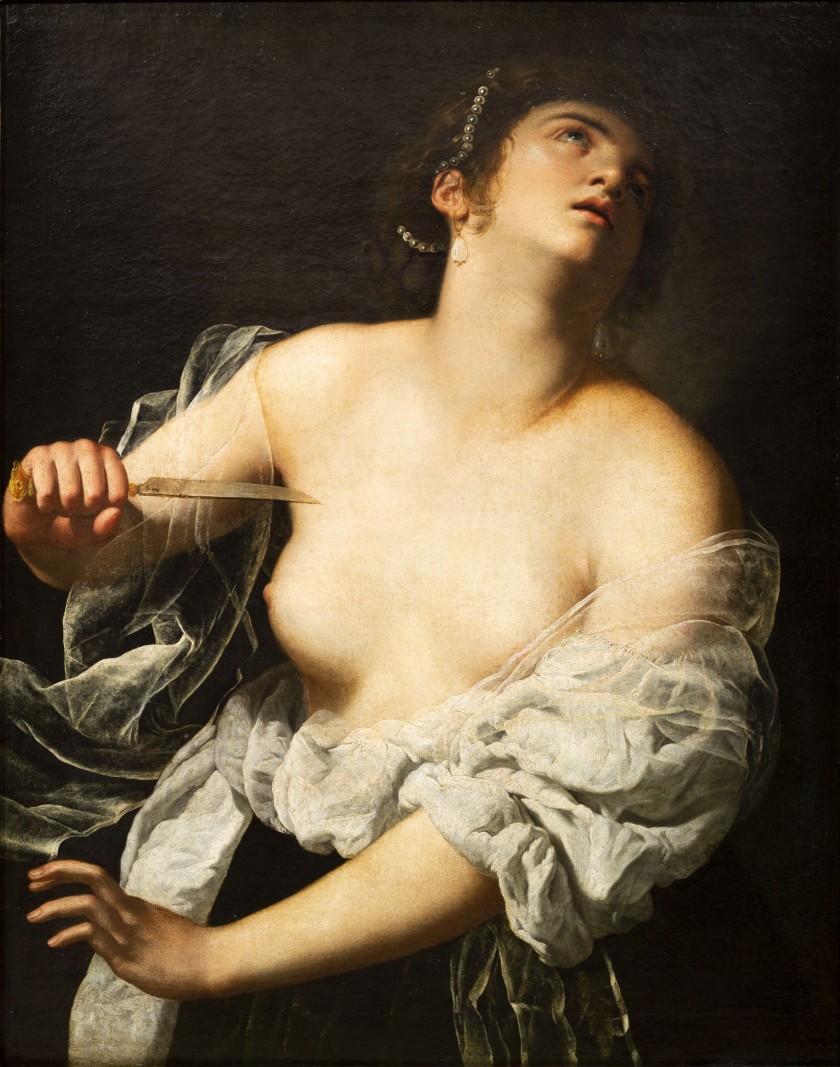[ad_1]

Artemisia Gentileschi’s Lucretia (ca. 1630-1640)
ARTCURIAL IMAGES
A newly discovered painting by artist Artemisia Gentileschi set a new auction record for the artist at a sale on Wednesday at Parisian house Artcurial. The painting, titled Lucretia, far exceeded its €600,000–€800,000 (roughly $770,000–$1 million) estimate, selling for a total price of €4.8 million ($6.1 million).
Artcurial told the Art Newspaper that the canvas was bought by a British collector. Lucretia broke Gentileschi’s previous record of €2.8 million ($3.6 million), which was set by the sale of a painting of Saint Catherine in Paris in 2017.
The painting depicts the Roman noblewoman Lucretia moments from committing suicide following a sexual assault—an act that ancient historians credit as impetus for Rome’s violent transition into a republic. According to the sales catalogue, experts believe the work was painted in Naples in the mid-1630s. The canvas sat unidentified in a private collection in the French city of Lyon for 40 years.
The record-breaking sale of Lucretia reflects the relatively sudden surge in market interest for Gentileschi. Despite decades of academic attention, Gentilieschi’s work has generally been sidelined in favor of her male colleagues—it wasn’t until 2014 that one of her works sold for more than $1 million.
Current events have made her paintings timely, however, given their emphasis on female figures rebelling against men in power, often through violent means. Her best-known painting, Judith Slaying Holofernes (ca. 1620), went viral on social media during the hearings preceding the confirmation of Brett Kavanaugh to the U.S. Supreme Court.
It seems there will be a lot more of Gentileschi to come, too. In July 2018, London’s National Gallery purchased Gentileschi’s Self-Portrait as Saint Catherine of Alexandria (ca. 1615–17) for £3.6m($4.6m)–the first artwork by a female artist acquired for the gallery’s permanent collection in 27 years. Next spring, the museum will stage an exhibition of Gentileschi’s work.
[ad_2]
Source link

